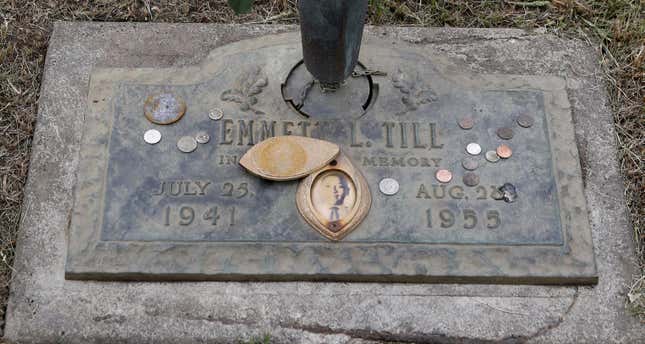
The Justice Department is still investigating several other Civil Rights Era deaths after closing the Emmett Till case this week. Using the Cold Case Initiative, investigators are probing other killings suspected to be racially-motivated, including Black men killed by the police across the Jim Crow South.
On Monday, the Justice Department announced that no criminal charges would be made in the 1955 lynching of Chicago teen Emmett Till in Mississippi. According to the Associated Press, the department is probing around 20 more civil rights era “cold cases.”
Among them are the six Black men fatally shot by police during a 1970 protest in Augusta, Georgia, the three Black victims of the Orangeburg Massacre in South Carolina and student protesters killed by police in Louisiana and Mississippi.
From AP:
The other police shootings under review were sparked by campus demonstrations amid simmering resentment over mistreatment of Black people.
Three men were killed on Feb. 8, 1968, during protests to desegregate a bowling alley near South Carolina State College in Orangeburg, South Carolina. Nine state police officers were acquitted in what came to be known as the “Orangeburg Massacre,” and a campus sports arena now honors the three victims, Samuel Hammond, Delano Middleton and Henry Smith.
Phillip Gibbs and James Earl Green were killed by police during a student demonstration at Jackson State University in Jackson, Mississippi, on May 15, 1970, and Leonard Brown and Denver Smith were gunned down during a protest at Southern University in Baton Rouge, Louisiana, on Nov. 16, 1972. No one was ever prosecuted for the killings in Jackson or Baton Rouge.
The seven other cases still under review by the Justice Department span the years 1959 through 1970 and involve individuals. The victims include 9-year-old Donna Reason, killed on May 18, 1970, when someone threw a Molotov cocktail into the home of her mixed-race family in Chester, Pennsylvania. No one was ever arrested.
The Cold Case Initiative began in 2006 and was formalized under the Emmett Till Unsolved Civil Rights Crime Act (“Emmett Till Act”), which passed in 2008. Together the FBI, Civil Rights Division and United States Attorneys’ Offices identify and investigate racially-motivated murders that occurred before 1980. The department also enlists the help of the National Association for the Advancement of Colored People (NAACP), the Southern Poverty Law Center (SPLC), the National Urban League and community members.
The attorney general issues annual reports to Congress, which are publicly accessible via their website, complete with a running list of open investigations. In this year’s report, investigations into the assassination of civil rights leader Edwin Pratt and lynching of U.S. veteran Henry Marrow remain open.

